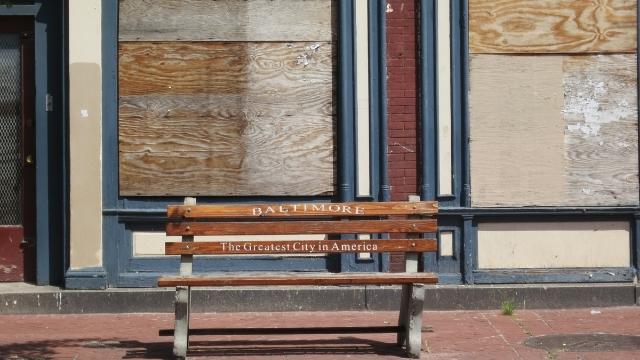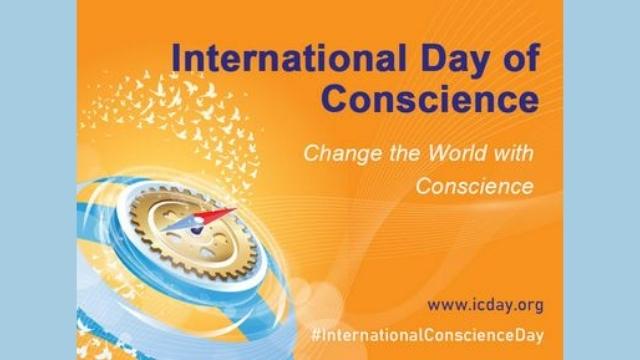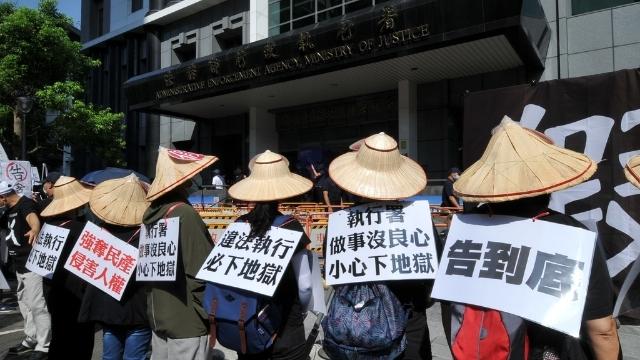11/12/2021GILL WANG
My experience in Baltimore told me that dialogue and conscience are the only tools to solve difficult problems. This lesson was lost on the bureaucrats who handled the Tai Ji Men case.
by Gill Wang*
*A paper presented at the 2021 Parliament of the World’s Religions, at the session “Peace and Justice in Action: The Tai Ji Men Experience,” October 17, 2021.

In the year 2000, Mayor Martin O’Malley boldly declared Baltimore “the Greatest City in America.” But to be the greatest city, it technically would have had to be the best at everything. Economics, education, job security, salary, etc. It would not have been difficult to dismiss this title, and indeed there was much to be uncovered about the city’s history.
I first learned about the city of Baltimore when I moved across the country from California and went there for college at Johns Hopkins University. During orientation, many mentors introduced parts of Baltimore in terms of where it was “nicer and safer” versus parts where we should not go at night. There was even a presentation of the “truth of Johns Hopkins,” and the histories and events the university took part in, in gentrifying the city.
Now, I am not here to criticize my university, but rather wanted to introduce just a small part of the history of Baltimore to understand the greater implications of what it means to be part of the community one lives in. I asked myself, what does it mean, as a Hopkins student, to serve the community? Based on the history of the relationship the university has had with the greater Baltimore community, how can I make sure that I am truly helping and not harming the community?

My peers and I learned about the descriptions of the “Black Butterfly” and the “White L,” names originally coined by Dr. Lawrence Brown. The former describes the “low-income, majority Black neighborhoods,” and the latter includes “the wealthy neighborhoods of Homeland and Guilford” (White). To put it into picture, you could be walking on a street with expensive houses but as you walk two blocks down, the scene changes. The prominent and lingering effects of gentrification and redlining pave way for social inequalities, including lack of access to health care, worsening education in specific areas, rise of cheaper and less heathy food options, just to name a few.
Social inequalities are not present just in Baltimore, but in many parts of the world. When social inequalities target a specific group of people, whether based on their skin color, religion, belief, gender, or other characteristics, the possibility of a safe, robust, and global dialogue is inhibited. Many voices are silenced, and some do not even have the opportunity to speak up. As this occurs, we begin losing different perspectives, i.e., the pluralism that makes up the foundation to various innovations, improvements, cultural exchanges, intersectionality, and creativity.
Since I was seven years old, I have been part of Tai Ji Men Qigong Academy, a non-profit organization where we practice qigong, reflect on personal growth, and spread love, peace, and conscience through cultural performances and forums. My shifu, Dr. Hong Tao-Tze, has taught me that focusing on improving myself is not enough, but we also need to better the world. I was able to see first-hand how valuable respecting and understanding each other as human beings is.
More often than not, we do not share the same language. But a universal language that we all share includes happiness, love, peace, and conscience. When that becomes our common goal, there is no better feeling than working together, hand in hand, seeking that common aim.
I have had many opportunities to participate in cultural exchanges, performances, forums––all with the objective of spreading the message of love, peace, and conscience. In 2014, Dr. Hong initiated the Era of Conscience movement. Conscience is like the inner voice within everyone, guiding individuals to help others, treat each other kindly, and cherish the environment. Since the movement started, people from 194 countries have endorsed Dr. Hong’s campaign for conscience.
It also inspired global activities in the past two decades, such as the “Declaration of Human Rights for World Citizens” in 2002 and the “International Day of Conscience,” which was declared to be April 5 every year when the 73rd Session of the UN General Assembly adopted the Promoting the culture of peace with love and conscience resolution on July 25, 2019. Our shifu interacts with world leaders like they are his friends and in response, many of them resonate with his message. Many world leaders wish to ultimately have love and peace in their respective countries; they are encouraged, in their roles, to make a positive impact and act on their conscience.

A global dialogue can only happen when we contribute as conscientious citizens. 25 years ago, however, the National Taxation Bureau in Taiwan infringed upon freedom of belief and religion of Tai Ji Men dizi, shifu, and shimu (i.e., the shifu’s wife) A few rogue bureaucrats acted in direct violation of their conscience, and began the false Tai Ji Men case in 1996.
To promote a culture of peace, love and conscience are the essential ingredients. The corrupt officials have denied the truth and disregarded their conscience. Certain Taiwanese government agencies, like the National Taxation Bureau, and their officials even shuns protestors and their efforts to speak up. For example, Taiwanese police arbitrarily arrested a Fight for Fair Tax volunteer who was just standing on the street peacefully and legally holding a sign. The officials maliciously smeared the truth and wanted to instigate fear. It is hard to imagine that this incident happened in Taiwan.
This past summer in July, I had the opportunity to participate in the International Religious Freedom Summit of 2021. As a volunteer of the Action Alliance to Redress 1219 and a dizi of Tai Ji Men, I wanted to contribute as a voice to bring justice. The grueling 24 years, now almost 25, have caused much blood, sweat, and tears. I remember at the Summit, when I would share our story to other guests, many were shocked. Everyone thinks of Taiwan as the “beacon of democracy” in Asia, so they were surprised to hear that freedom of religion or belief was violated there.
I replied that it was also a surprise to me that this happened, but for the very reason that I love Taiwan, I want it to become a better country. Because we have exhausted all domestic options, we were there at the Summit to seek international support. Not only was I able to share the story of our case, but I also learned from and connected with others. In doing so, we are not solely focusing on the plight of our own religious persecution. Instead, each story empowers one another to move forward and join hands to confront and resolve these human rights violations.

As the charter of the International Religious Freedom Summit expressed, the goal is to strive for “international religious freedom for everyone, everywhere, all the time.” I’ve learned from shifu that conscience is the compass we live by and the key to a sustainable future. I call on the rogue government officials who persecuted Tai Ji Men to find the conscience within themselves and correct their wrongs. As a youth, I am joined by thousands of peers and volunteers of all ages in the Action Alliance to Redress 1219. I will not stop speaking up about the Tai Ji Men case and injustices elsewhere until justice is served.
I hope that I can also contribute to the harmony and sustainability of the future world. What is happening to Tai Ji Men is also happening to other groups, and similar injustices are inflicted upon people all over the world. Although the path to a world without injustice may be long and hard, I believe that with determination, teamwork, and actions, the path will become clearer and brighter. As global citizens, let us join hands and work together to awaken the conscience in everyone’s hearts to advance the road to human rights, and only then can global voices be protected and cherished.
Source: Bitter Winter
